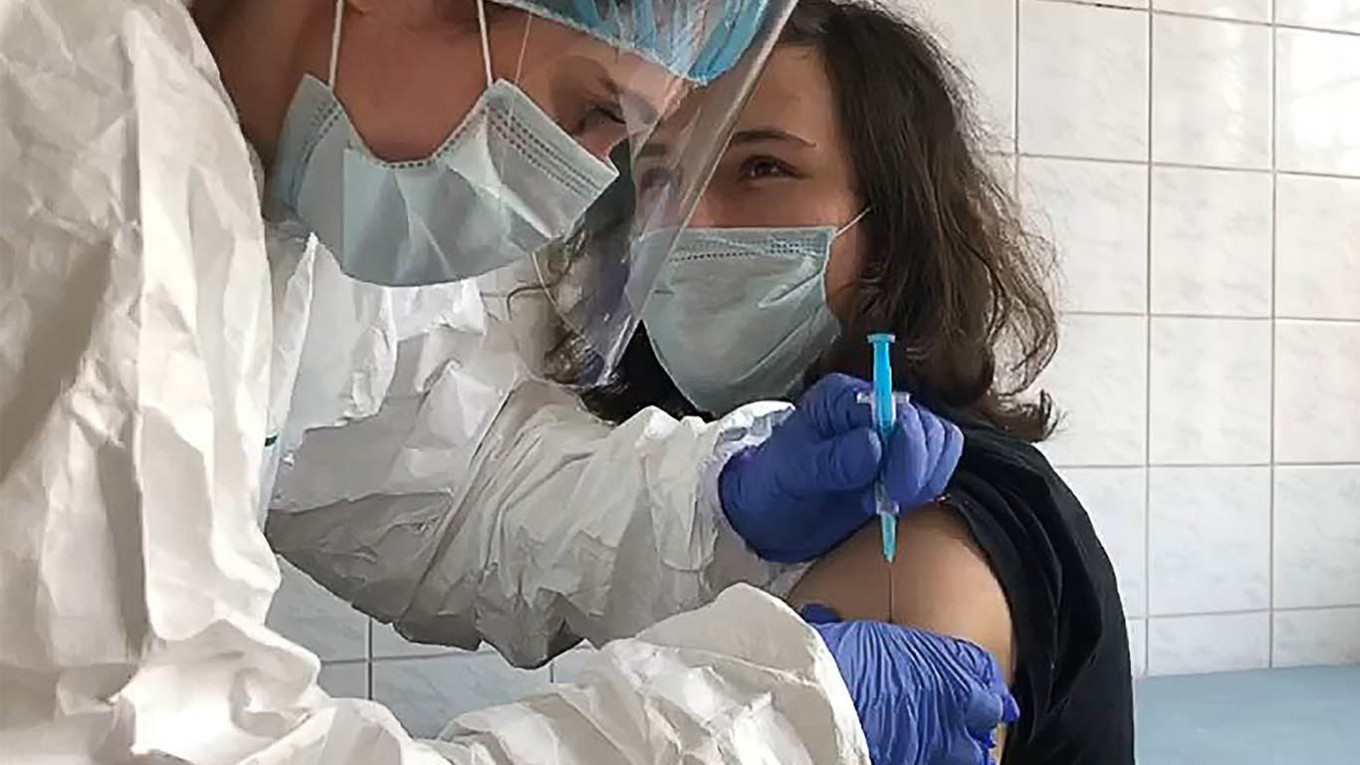A Russian virologist has questioned the country’s swiftly developed coronavirus vaccine, warning that it could be dangerous for people who have antibodies against the virus.
Russia is one of several countries racing to develop a vaccine to halt the disease that has killed more than 700,000 people and slammed the global economy. One vaccine, developed by the state-run Gamaleya institute, is set to receive official registration in the coming days amid its final phase of clinical testing.
“The danger is there … in terms of the possibility of increasing the disease[‘s severity] with the wrong vaccine,” Alexander Chepurnov, a former head of infectious diseases at Vektor, told the Podyom Telegram channel Friday.
Based in Siberia, Vektor is one of three labs developing Russia’s prototype vaccines.
“With some diseases —and for the coronavirus, this is already known — the infection can intensify with the presence of certain antibodies,” he said. “So it should be known which antibodies the vaccine forms.”
He pointed to the lack of available information and data about the vaccine’s clinical trials as a red flag.
“Until I see studies and scientific publications that say how the vaccine was studied, what level of neutralization is formed, what doses of the virus it protects against and, most importantly, whether it is developing the ability to increase infection by antibodies, it is impossible to talk about the release of a vaccine,” he said.
Gamaleya's vaccine is a so-called viral vector vaccine, meaning it employs another virus to carry the DNA encoding the necessary immune response into cells. It is based on the adenovirus, the common cold.
The World Health Organization this week raised concerns over the vaccine after Moscow said it aims to launch mass production next month, stressing that all vaccine candidates should go through the full stages of testing before being rolled out.
A Message from The Moscow Times:
Dear readers,
We are facing unprecedented challenges. Russia's Prosecutor General's Office has designated The Moscow Times as an "undesirable" organization, criminalizing our work and putting our staff at risk of prosecution. This follows our earlier unjust labeling as a "foreign agent."
These actions are direct attempts to silence independent journalism in Russia. The authorities claim our work "discredits the decisions of the Russian leadership." We see things differently: we strive to provide accurate, unbiased reporting on Russia.
We, the journalists of The Moscow Times, refuse to be silenced. But to continue our work, we need your help.
Your support, no matter how small, makes a world of difference. If you can, please support us monthly starting from just $2. It's quick to set up, and every contribution makes a significant impact.
By supporting The Moscow Times, you're defending open, independent journalism in the face of repression. Thank you for standing with us.
Remind me later.






